Iran Holds Massive Ceremonies While Covid-19 Resurging
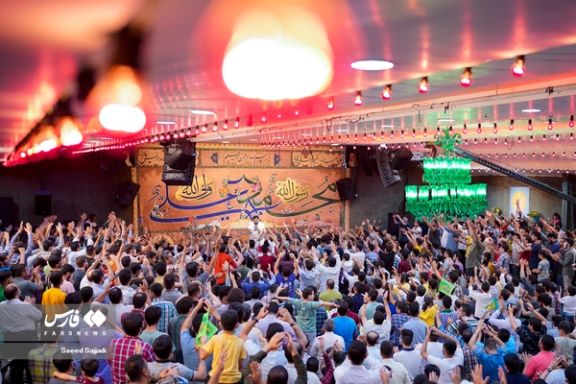
While health authorities in Iran have announced the seventh wave of Covid-19 pandemic, the government organized a “10-kilometer-long” ceremony to celebrate a religious holiday in Tehran.

While health authorities in Iran have announced the seventh wave of Covid-19 pandemic, the government organized a “10-kilometer-long” ceremony to celebrate a religious holiday in Tehran.
According to IRNA on Monday, the ceremony on Valiasr Street -- one of Tehran's main thoroughfares and commercial centers said to be the longest street in the Middle East, was organized on the occasion of Eid al-Ghadir, a Shiite commemorative holiday, claiming that it was the biggest gathering in the city ever.
Similar ceremonies were also held in many cities across the country while the growing number of Covid-19 patients has prompted the Health Ministry to announce new restrictions.
The spokesman for Iran’s Covid-19 taskforce, Abbas Shirozhan, said Monday that the number of fatalities due to covid-19 has increased 40 percent within the past week. Iran’s daily infection numbers have 5,000 cases daily, and deaths are growing in double-digit numbers.
According to epidemiologists, two new subvariant of Omicron, namely BA4 and BA5 -- which started in the African continent -- may soon prevail over the country.
The number of overall deaths in Iran since Covid-19 emerged in February 2020 has been 300,000 higher than in previous years, suggesting pandemic deaths may be more than officially reported.
Iran has reported around 141,000 deaths from Covid, the Middle East’s highest official level, leaving 160,000 more deaths unexplained.
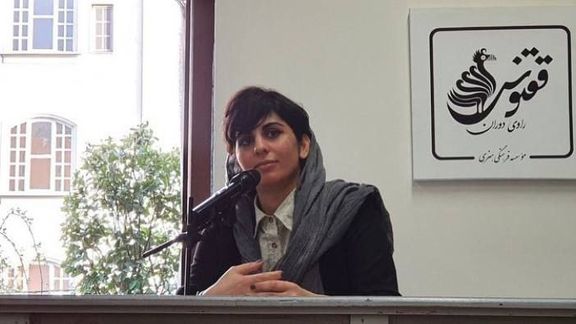
Iran’s government continues its intense campaign to force women to wear the hijab, as public debate on the issue flares up each day with fresh news of confrontations.
A woman who was arrested because of an acrimonious dispute with a hijab enforcer in a city bus was identified as Sepideh Rashno, an educated person with a good public profile, Iran International has learned.
Rashno – a 28-year-old artist, writer and editor – was arrested on Saturday evening, July 16, after a video of her quarrel with a woman enforcing hijab rules – identified as Rayeheh Rabi’i -- went viral.
In the video Rabi’i, who was fully covered by a long, black ‘chador’ – which is typical of the supporters of the Islamic Republic – is seen shouting at Rashno who had unveiled in the transit bus. The quarrel became so frantic that other passengers intervened and kicked the hijab enforcer out of the bus.
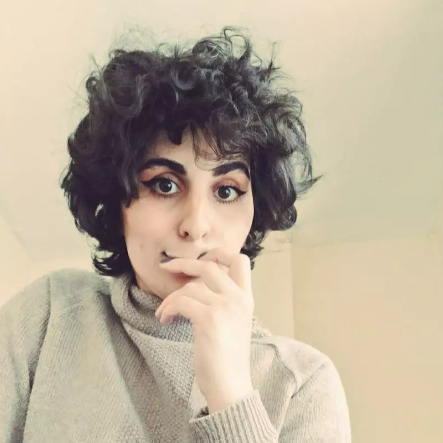
Rabi’i was also recording the incident and threatening the hijab-protester to send it to the Revolutionary Guards. There are unconfirmed reports on social media that Rabi’i’s father is a member of the Revolutionary Guard’s Basij paramilitary force and was involved in the crackdown of popular protests in 2009.
Some government officials, including the head of the Islamic Development Organization, have praised Rabi’i and called on people to confront women who unveil in public.
IRGC affiliated Fars news broke the news which could frighten people whose support for anti-hijab protests are growing, adding that several other anti-hijab activists had also been arrested since Iranian women launched a campaign against the compulsory Islamic dress code on July 12.
In another video released this week, a man started berating a few teenage girls who had removed their hijab at a subway station in Tehran, but other people came to help and sent the angry man away. The number of videos of confrontations between anti-hijab protesters and hijab enforcers are growing in social media.
In a statement released on Sunday, Iran’s exiled queen Farah Pahlavi condemned the widespread arrests of civil and human rights activists in Iran, particularly the anti-hijab activists.
Denouncing the violent behavior of the morality – or hijab – police while arresting the protesters, she said that “not a day goes by without news and images of attacks on women and violation of their rights, disturbing the souls of noble Iranians, but the news of the civil struggle of women and men of my land against any kind of coercion and discrimination is a source of pride and honor.”
Iranians deserve peaceful coexistence no matter their beliefs, clothing or lifestyle as it was like this before the Islamic Revolution and will become so thanks to people, she said.
She noted that the will and civil courage of Iranian men and women is greater and stronger “than the oppressors’ power.”
On July 12, following a call by women’s rights activists for civil disobedience with the hashtag of ‘No2Hijab’ social media exploded with dozens of videos and photos of women unveiling in public.
Iran has started arresting women who participated in the nationwide campaign against the compulsory Islamic dress code this week.
For the past few weeks, the government has increased harassment of women for their insufficient hijab and many have been detained by special police patrols.
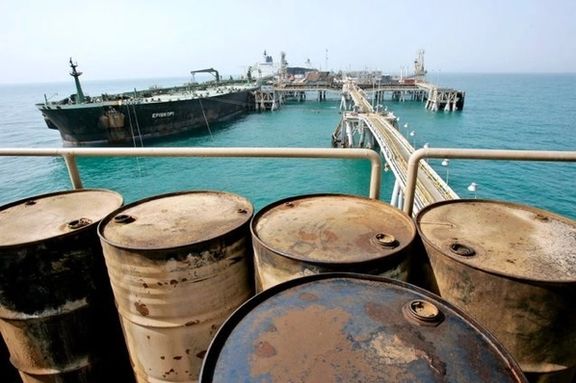
Iran has raised official prices for its light grade oil above average for its Asian buyers for August, although most of its oil is sold by intermediaries with no information on actual prices.
The National Iranian Oil Company set the official selling price (OSP) of its light grade oil at $8.90 above the Oman/Dubai average, up $2.80 from the previous month.
The new prices are announced about $9 higher than the average for countries in Asia – which are reportedly the only buyers of Iranian oil -- but are only $3 higher for Europe, the Mediterranean and Africa, which have not bought any oil from the Islamic Republic for the past three years.
China and Syria are the only official buyers of Iran’s oil, with less than 26,000 barrels of direct purchase per day by China, but data by tanker tracking companies indicate that Iran delivered 600 to 700 thousand barrels, which means over 95 percent of Iran’s oil exports are carried out via intermediaries disguised as Iraqi, Emirati, Indonesian or Malaysian oil.
US third-party sanctions imposed by former President Donald Trump are still in force, as Tehran has failed to reach a nuclear agreement with Washington. Higher listed prices could be a move by Iran to show that it is able to export its oil under good terms despite US sanctions.
On July 12, Iran said its oil production in June increased by 31,000 barrels a day, rejecting reports that Russia has taken market share, shipping more oil to China. Latest OPEC monthly report shows that Iran produced 2,574,000 barrels per day in June, slightly higher than in May.
When the United States imposed full oil export sanctions on Iran in May 2019, exports dropped from more than 2 million barrels a day in 2016-2017 to around 250,000.
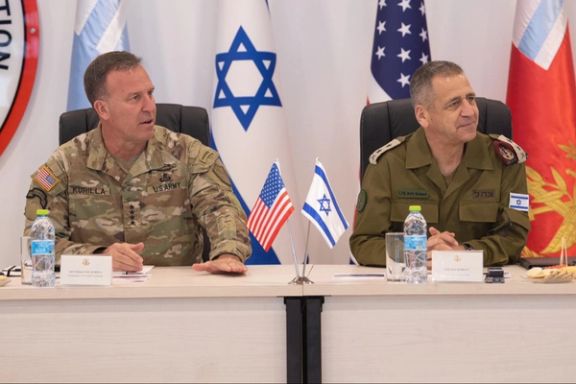
The US military commander in the Middle East met Sunday with the commander of the Israeli Defense Force to discuss the integrated air and missile defense system.
CENTCOM Commander General Michael Kurilla and IDF Chief of Staff Lt General Aviv Kochavi discussed “he importance of an integrated air and missile defense system, as well as the continued need for strong regional security cooperation.”
According to a statement by CENTCOM Public Affairs, Kurilla told Kochavi “As President Biden said earlier this week in Israel, and Secretary of Defense Lloyd Austin echoed, the United States’ commitment to Israel remains ironclad. Regional security remains paramount for both CENTCOM and the IDF.”
Israel's Minister of Defense Benny Gantz, who also met with Kurilla during his visit to Jerusalem and Tel Aviv, boasted about “the unparalleled defense relations between Israel and the US,” highlighting CENTCOM’s important role in maintaining regional peace and stability.
In a speech at a ceremony marking the change of the military’s Home Front Command chief, Kohavi said Sunday that it is a “moral obligation and a national security order” to prepare a military response against Iran’s nuclear program.
“Preparing the home front for war is a task that must be accelerated in the coming years, especially in light of the possibility that we will be required to act against the nuclear threat. The IDF continues to prepare vigorously for an attack on Iran,” he said.
Tehran has repeatedly warned regional Arab countries over the plan to launch the air defense system with the United States and Israel to confront Iran's missiles and drones.
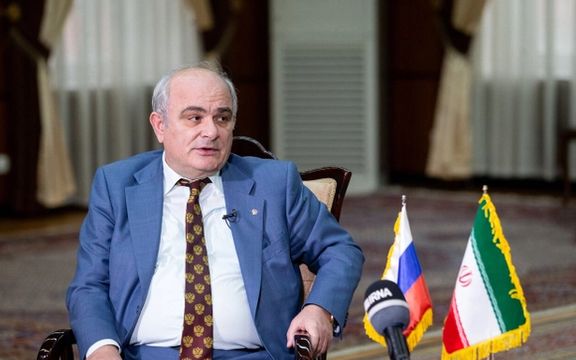
Russia's ambassador To Tehran has again made headlines for all the wrong reasons as Ali Khamenei is expecting a meeting with Russian leader Vladimir Putin soon.
Iranian media have often perceived Levan Dzhagaryan's (Jagarian) controversial behavior as intervention in Iran's internal affairs or as flat insults although he does not seem to be bothered by the accusations. On social media, however, and recently in Tehran media Iranians have been demanding an answer to the ambassador's outrageous and provocative remarks.
Khabar Online, a moderate conservative news outlet in Tehran asked on Sunday, July 17, "Where are the government and the foreign ministry" after Dzhagariantold Sharq newspaper in Tehran the day before that "We have always been on Iran's side, but the West want to bring their absurd values such as homosexuality and other dirty things to Iran but we object to that!"
Many Iranians on social media reminded the ambassador that Russia is a large producer of pornography in the world.
The ambassador also said in the same interview: "There are things that I don’t want to reveal, but what is clear is that Iran owes us hundreds of millions of euros and doesn’t pay." Some Iranians on social media perceived this as a prelude to plundering Iran's resources as the alleged debt is about decades of Russia's partnership with the Islamic Republic in constructing the Bushehr nuclear power plant that contributes little to Iran’s electricity.
In an earlier remark, Dzhagaryan had said that "hijab and the lack of alcoholic drinks in Iran prevent Russian tourists from coming to Iran." His remarks which contained criticism of the Islamic Republic's underlying values, was harshly criticized by former Iranian lawmaker Ali Motahari.
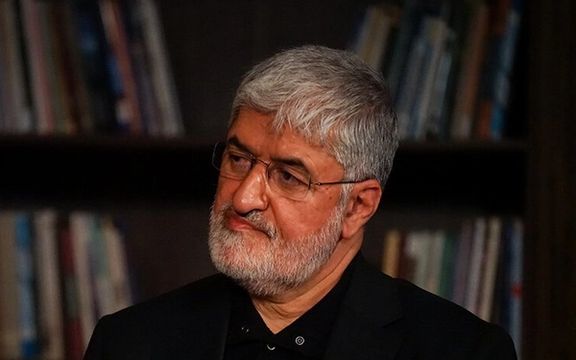
At the same time, Motahari and many other Iranians on social media criticized the Raisi administration's silence in the face of Dzhagaryan's comments. The ambassador's earlier remarks particularly angered Iranian journalists when he told them not to call Russia's war against Ukraine an "invasion." The journalists charged that the Raisi administration does not object to Dzhagaryan because it does not want to annoy Russia which is Tehran's close ally.
In another development, when President Biden and the first lady congratulated Iranians on Nowruz, Dzhagarayan dismissed Biden's gesture as "hypocrisy" and reminded that Biden has imposed sanctions on Iran.
These and several other remarks and actions by the ambassador have most certainly not been constructive while at a higher level, Iran and Russia do a lot to pretend to be allies against the United States and Europe.
The Islamic Republic has gone out of its way to give Russians the authority to intervene during Iran's negotiations with the West to revive the 2015 nuclear deal.
Although Putin's visit to Tehran is officially within the frameworks of the Astana Peace Process for Syria, the initiative is long dead and Putin, Turkey's Recep Tayyip Erdogan and Iran's Khamenei are part of the problem in the Syrian civil war rather than being able to offer solutions.
Putin is most likely visiting Iran to personally convey his messages to Khamenei who never travels abroad and have a meeting with Erdogan to sort out problems about seizing Russian food cargos going through the Bosporus, based on arrangements with NATO.
Meanwhile, Eurasia expert Mahmoud Shouri told reporters in Tehran that Cold War geopolitical demarcations are being revived. He said the meeting in Tehran could be part of the initiatives to forge new alliances. He added in view of the fact that Biden did not gain much during his regional tour, Russia must be thinking of leaving the void Washington has left behind in the region.
What Khamenei can get out of the meeting is pretending that new alliances in the Middle East have not totally isolated him as he can at least host Putin.
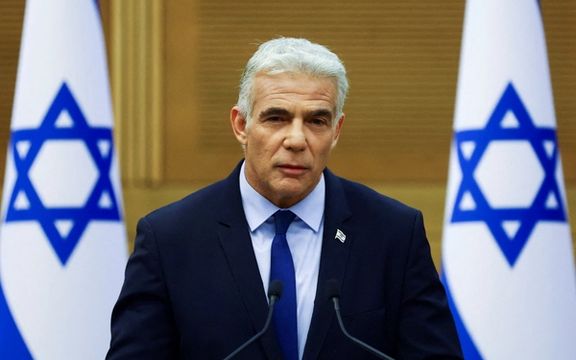
Israeli Prime Minister Yair Lapid says US and Israel do not “necessarily agree” over a credible military option against Iran but Israel maintains complete freedom to act against Tehran.
At the weekly cabinet meeting on Sunday, Lapid said, “We came and asked to introduce a credible military threat during President Biden’s visit. We want the basis [for world power’s negotiations with Iran] to be a credible military threat. We didn’t necessarily agree on this with the Americans at the present time.”
He said he “made it clear to the president and his team that Israel opposes the nuclear deal and maintains complete freedom to act, diplomatically and operationally, in the face of the Iranian nuclear program.”
Lapid also described Biden’s trip to Israel “a historic visit, with achievements in diplomacy, security and the economy.”
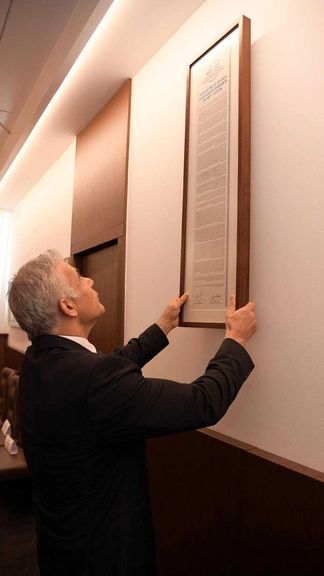
Lapid’s office also issued a photo of him hanging up the so-called Jerusalem Declaration -- signed by Lapid and Biden in which Washington committed to “use all elements of its national power” to ensure Iran never acquires a nuclear weapon -- in the cabinet meeting room in Jerusalem. Lapid said he was hanging the statement “in the place intended for historical declarations.”
Washington pledged further “defense assistance” on top of the $38 billion 10-year Memorandum of Understanding in 2016 under President Barack Obama and the $1-billion assistance after the 2021 Israeli-Palestinian violence centered on Gaza.